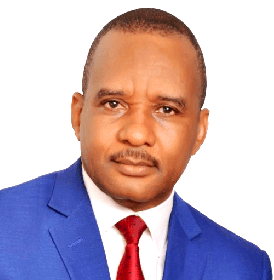Recently, the Director General of Nigerian Maritime Administration and Safety Agency (NIMASA); Dr Bashir Jamoh disclosed that there is a high level of failure among seafarers who sat for the Certificate of Competency (CoC) examinations.

The NIMASA DG told journalists that out of 829 seafarers who sat for the COC examination under the officer cadre, only 264 passed representing just 32%, meaning that 68% of the seafarers who sat for the examination failed.
Without equivocation, the result shows how badly the nation’s maritime education has slipped. The NIMASA DG had told journalists at a recent press briefing, that out of 829 seafarers who sat for examination under the officer cadre, only 264 passed representing just 32%.
The DG also noted that in 2020, in the Officers examination, the total number that sat for that examination was 610, and the total number that passed was only 251, forming a percentage of 41% pass, while 359 failed, amounting to 59% failure.
The statistics reeled out by Dr Jamoh clearly underscores the fact that the nation’s maritime education is in a sorry state.
Our worry is even compounded by the explanation that was offered by Rector, Maritime Academy of Nigeria (MAN) Oron, Commodore Emmanuel Effedua (rtd), when responding to the mass failure. He said the failure was because seafarers do not attend classes preparatory to the examinations.
He said: “My personal observation is that these candidates hardly attend classes. Candidates register for the examination but only about 30% of the registered candidates end up attending all the classes.”
“It is pertinent to note that these classes are Revision Classes and not training as misconstrued in many quarters. There is nothing new that these candidates need to be taught as they have already been trained at various institutions including the Academy before coming to the Academy to write the Examinations”!
Not done yet, Effedua added that some of the candidates who sit for the COC Examinations have never had formal training in Navigation/Seamanship or Engineering. But, they are qualified to sit for the examination after serving onboard a merchant vessel for 36 months.
“Having served onboard vessels for at least 36 months as prescribed by the Standard of Training, Certification and Watchkeeping (STCW) which automatically makes them eligible to write the Examination. Having mentioned some of these observations, it will be miraculous for such candidates and those who make scanty appearances at lectures to pass examinations”, he said.
Officially, there are only two government–owned maritime training institutions in Nigeria, namely: Maritime Academy of Nigeria, Oron in Akwa Ibom State and the Federal College of Fisheries and Marine Technology, Lagos. These are the two that are owned by the Federal Government and ‘recognised’ as maritime training institutions in Nigeria.
Outside of these, there are scores of accredited maritime training institutions, many of which have been tagged ‘mushroom’ by some stakeholders.
However, in contrast to what is obtainable in Nigeria, Philippines has 66 functional maritime training institutions, all of them of international standard, churning out world-recognised professionals in nautical sciences, marine engineering, marine transportation and a lot of other maritime courses. With their population, Philippines is the largest supplier of ship crews in the world as the country’s cadets work on board ships all over the world.
From available statistics, there more than 5,000 cadets of the Maritime Academy of Nigeria(MAN), Oron who, although completed their National Diploma programme for many years, have not been unable to proceed for the Higher National Diploma (HND) programme because they are unable to acquire sea-time experience. Worse still, most of them are unemployable, because they cannot be issued Certificate of Competency (CoC) – a mandatory requirement for placement on board ships. From what the NIMASA DG said, they may not even be able to pass the CoC examinations.
While we agree that government alone (through MAN, Oron and the College of Fisheries and Marine Technology) cannot meet the need of the nation in the area of maritime education, we are not in support of the predominance of dignified secondary schools that are currently bestriding our landscape in the name of offering maritime education.
We are also more worried about the justification (as it were) that was given by the Rector of MAN, Oron for the high level of failure in the all-important CoC Examinations.
Read Also: Do you agree that standard of maritime education in Nigeria has fallen?
The fact that someone has been on board a vessel for 36 months should not qualify that person for a sit in the hall to write CoC examinations. Even though the STCW that the Rector is alluding to, prescribes 36 months, the abuses and the sharp practices involved in the preparations for seafaring in Nigeria have made a mess of the STCW perquisite.
The STCW didn’t envisage that it was possible for someone who has never been to marine or nautical college to work on board a ship. But such happens in Nigeria. As a maritime media organisation, we can confirm that such unethical practices do happen. Discharge Cards are fraudulently sold to individuals who have never been on board any vessel!
That some of the seafarers who register for CoC examinations do not attend the mandatory lectures, but only come for exams is a disservice to the nation’s maritime industry by both NIMASA and MAN Oron. Why allow truants sit for exams?
What Nigeria needs at this period is a deliberate policy on maritime education that is tailored towards churning out qualified seafarers, who can advance from such nautical schools to commence sea time and from there, become qualified professionals.
Since passing the CoC is mandatory for professional advancement, both NIMASA and MAN Oron and the few privately-owned institutions, should clean-up the process leading to the examinations. That process would begin with ensuring that fake seafarers are eliminated from the system.
Kindly like us on Facebook
















Discussion about this post